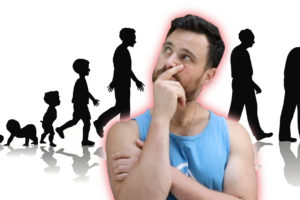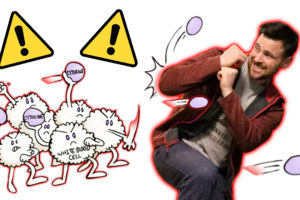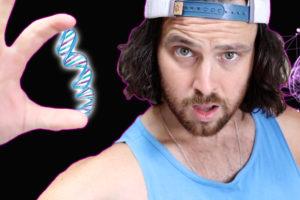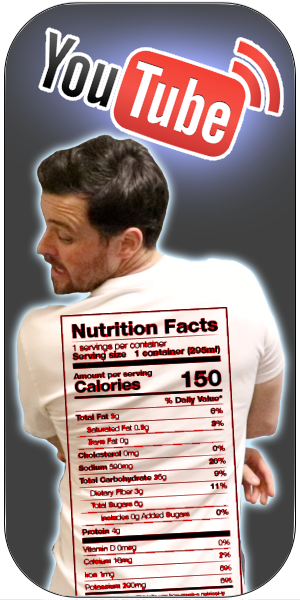What’s My Age Again? – That Depends
I’d like to introduce you to Bob. He’s about 6’2″ and drains threes in defenders faces on a weekly basis (yes, that includes me). He’s been lacing up those sneakers, two nights a week, for the past 30 years. Bob’s in his late eighty’s, has had multiple surgeries (knee and shoulder), and drives a brand spanking new Mustang (for some reason this surprised me, even though it shouldn’t have) . It’s safe to say he’s had a few opportunities to “hang em up” over the years yet he keeps showing up, he even gets into scuffles (I could of sworn he was going fisticuffs last week). How old is Bob?
Is it fair to say Bob is the same age as his eighty year old sedentary neighbor, a seventy year old living in a nursing home, or for that matter someone in their sixty’s who sits on their ass all day? Good question right… Someone who is living an active lifestyle into old age can’t be functioning in a biologically similar matter as their feeble counterpart, can they? Hell, at 27 I don’t think I’m operating biologically similar to my 27 year old brethren and sistren! To compare people at an advanced age, who’ve had so many years of good, bad, and salty decisions add up, is quite the endeavor.
Is it “Just a Number”
This opens the debate of which age matters: Chronological, Biological, or Both. We activity track time from a macro perspective in years. There’s the year we were born and a present year, some simple math brings us to our chronological age. This number is important, especially when we’re younger, it provides a “guideline” on what we should expect in the first twenty (or so) years of our life. It’s especially important from a societal and social standpoint, influencing “oh so important” things such as: birthday parties, driving, drinking, marriage, retirement, etc…. But as we grow our grey hairs of wisdom, that number we’ve associated with our whole life becomes a little less helpful in determining true age. In fact, for a surprisingly large segment of the older population, chronological age is not a relevant marker for understanding, measuring, or experiencing healthy aging [1].
The chart below highlights this simple truth: Although three individuals may be the same chronological age (x-axis) , their biological markers (y-axis) could be in a totally different spectrum. The red curve shows the sharp decrease in our –current– ability to predict an individuals true age over time [2]. So, once again, how freaking old is Bob???

It’s a search for markers that will accurately indicate Healthspan (quality of life) rather than just Lifespan (length of life). Why? Ponder this: If given the choice right now between the following two options:
- Live to age 80, comprised of truly Healthy and Happy years (Lifespan = 80 / Healthspan =80)
- Live to a healthy age of 120, BUT spend years 60-120 in a room isolated from the world (Lifespan = 120 / Healthspan = 60)
It’d be a no brainier, unless solitary confinement is your cup of tea. There is a trade-off between Health, Happiness and Time that most are willing to make, and interventions to extend healthspan – in many cases – will assist the quest for lifespan as well.
The Bio Markers
Scientists have tapped on a number of “biomarkes” – or biological parameters of an organism that either alone or in some multivariate composite will, in the absence of disease, better predict functional capability at some late age, than will chronological age– to help solve this messy equation. The goal being, to predict the years a person would spend being free from frailty before death. Ideally, this marker combination would be a useful indicator both in mid (and late) life [3]. I won’t get into the exact markers here, but I’ll tell you, the markers of significance have been updated several times over the past 30 years, and I have a feeling the we’ll see more updates as research deepens…that’s just science.
Speaking of feelings, what about your immature friend who still acts like a giddy little kid? Well, he or she (but most likely he) may be onto something. A 2018 study looked into how Subjective age (SA) – or how individuals experience themselves as younger or older than their chronological age – correlated with the neurobiological process of aging [4]. The results showed that elderly individuals who perceived themselves as younger than their real age showed not only larger grey matter(which is good for those keeping score at home), but also younger predicted brain age. So to all those twenty-eight , forty-one , fifty-five and seventy-nine year olds out there, STOP telling yourself your old! Because that very-well could be effecting your biological age for the worse. Find that middle-ground between All Business and your wife telling you to stop acting like a child – and make that home base.
Back to Bob
I had to ask, “Bob, how are you still draining corner threes – and stepping over the lifeless bodies on your trot back – at this age? ” (OK, I made up that last part), his answer was swift and precise, as if he knew the question before it left my mouth, “I never stopped, once you do it’s game over”. Bob! My Dude! Whether he knew it or not (or if he cared or not), he had found an intervention that worked. Exercise 2-3 times a week has protected him from sarcopenia (muscle loss with aging), cognitive decline, and delayed his overall aging. I mean, he’s pushing ninety rolling around in a Mustang! I bet 80% of ninety year olds (non-official stat) wouldn’t be able to get out of the passenger seat of that car, let alone drive it.
The challenge the scientific community faces is finding a way to personalize an individuals biological age. Although we (humans) are all rather similar, at a molecular level we are drastically unique. Certain people may be predisposed to certain conditions, while others are totally unfazed. That, with the many other factors (diet, genetics and environmental, etc.) contribute to how fast an organism ages, which can make determining true biological age a puzzle. Before you pick up the Oreo’s, all hope is not lost! We do know of interventions that can truly make a difference:
These pillars are common in every health article for a reason, and when used in combination with each other, their powers multiply. The trick is finding your minimum required dose, and that’s a person-by-person measurement. But back to Bob, I do have to disagree with him on one thing, if you stop, it’s NOT Game-Over. Harder, Yes! But not over. Ultimately it’s a game of chance, but you can always sway the odds…
P.S – Here’s a cool biological age survey, not particularly for the reasons of accuracy (it said i was 5 years old… now that I think about it) but for the questions you should be thinking about as you assess your current state…







